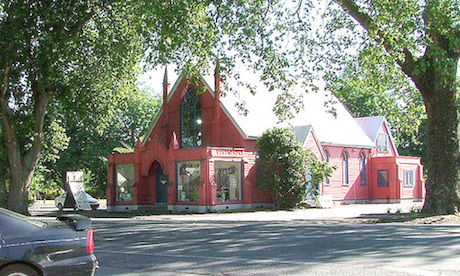Selling old churches has become the new norm, real estate agents say.
Churches around the country are shutting their doors as congregations and funds dwindle, and ageing buildings need seismic strengthening.
More and more old churches are being converted into cafes, craft shops, offices and homes.
Heritage New Zealand said of nearly 200,000 non-residential buildings, 45 percent were earthquake prone.
Chief Executive Bruce Chapman said churches were disproportionately represented because of their heritage values and their age.
“It’s likely that quite a high percentage of our larger churches in New Zealand, those of unreinforced masonry, are likely to be earthquake-prone.”
Chapman said low attendance meant many smaller churches were likely to face demolition because of an inability to raise money.
“We’re finding around the country that many of the churches have reducing congregations, and an inability to sustain even basic maintenance, let alone earthquake strengthening.”
He said many church buildings had been adapted into residential properties, restaurants and open space offices.
St David’s Presbyterian church in Khyber Pass, Auckland, closed last December, and faces possible demolition.
The Friends of St David’s Trust have initiated a project that they hope will help prevent the demolition of St David’s.
Trust founder Paul Baragwanath said the ‘Art of Remembrance’ project, which decorates the face of the church, aimed to raise awareness about the soldiers’ memorial church’s role in the community.
He said while the church was at risk of demolition, it could survive if there was enough community support.
If successful the church will continue in its role as a community church for regular services, weddings, funerals and baptisms, and also as a national war memorial.
It would also be available to the community as a meeting place and as quiet place for people to visit during the working day.
Source
